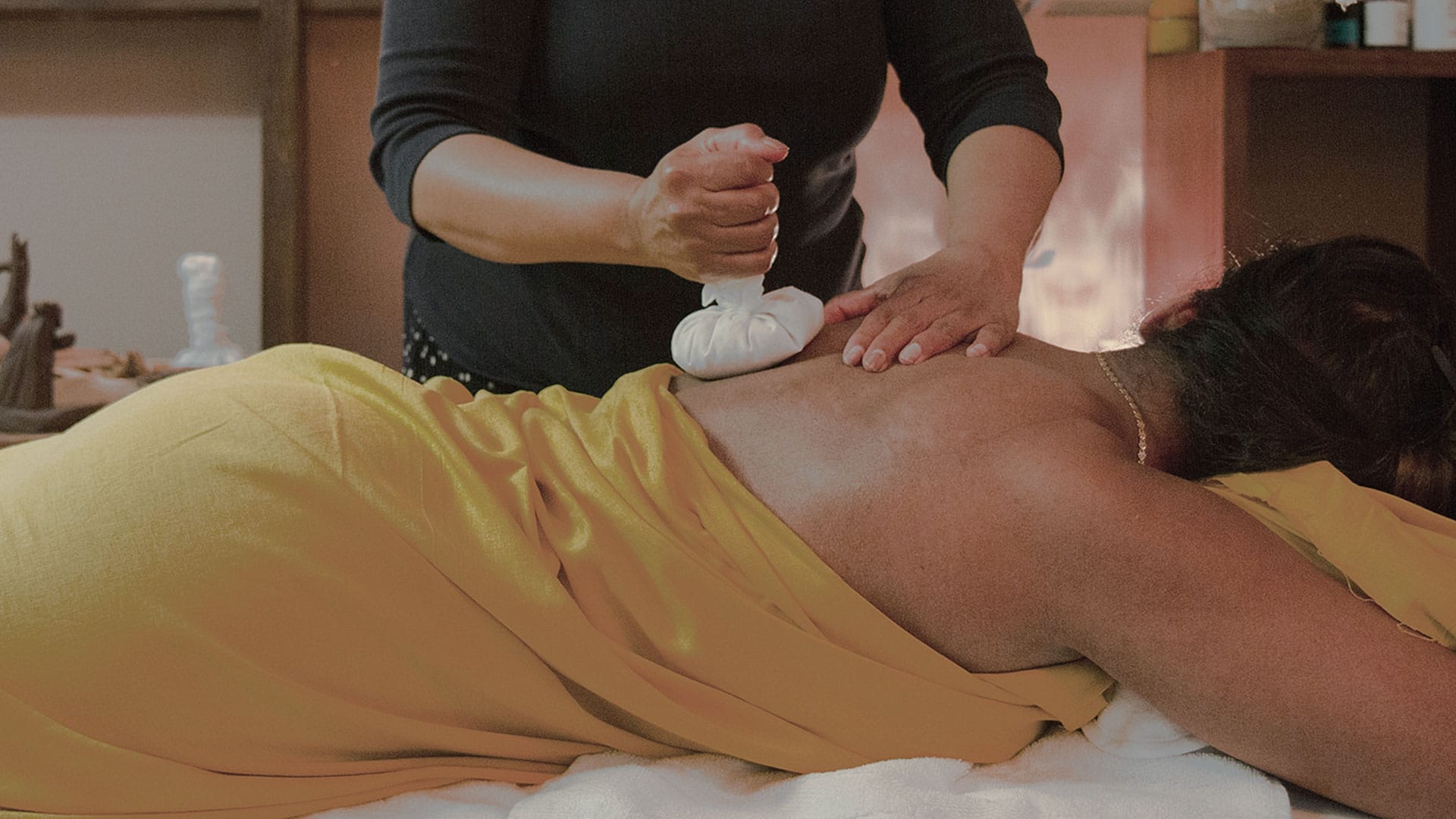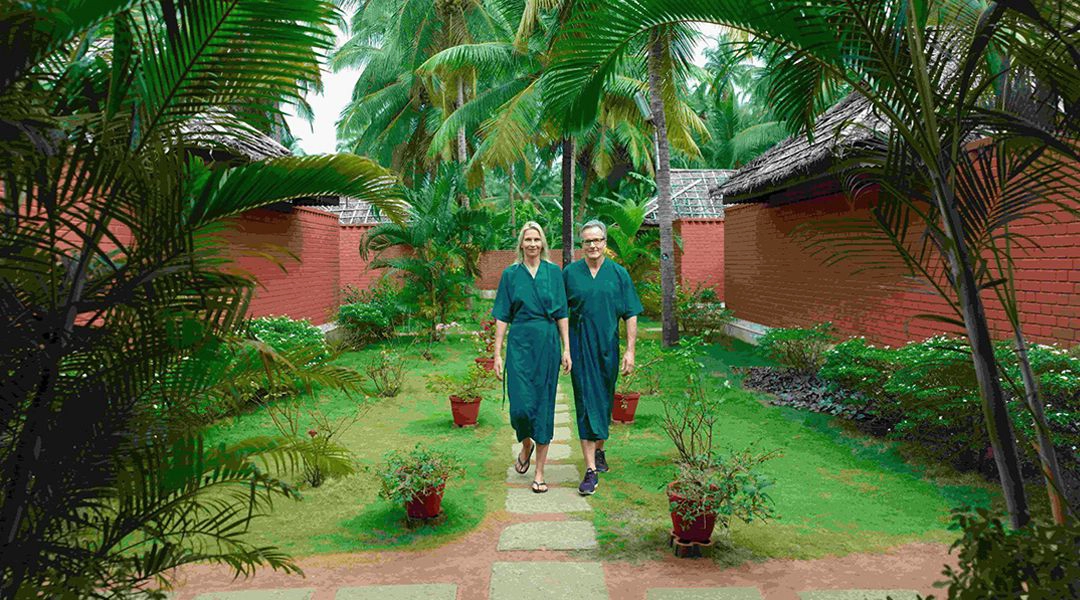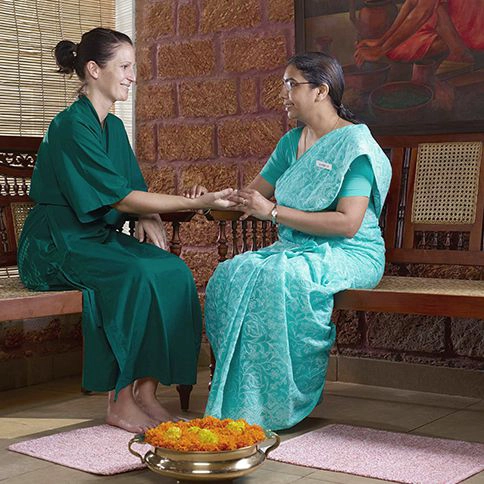The Gut and brain connection according to Ayurveda
The Gut and brain connection according to Ayurveda

Ayurveda, recognizes the connection between the gut and the brain. According to Ayurveda, the digestive system and the mind are intimately connected, and imbalances in one can lead to imbalances in the other. This connection is explained through the concept of agni, or digestive fire, which is responsible for the proper digestion and assimilation of food, as well as the processing of thoughts and emotions.
Agni is the cornerstone of Ayurvedic theory, and it is believed to be responsible for maintaining good health and vitality. It is the digestive fire that breaks down food into its basic components, allowing the body to absorb the nutrients it needs to function properly. But agni is not just limited to the physical digestion of food. According to Ayurveda, agni is also responsible for the digestion of thoughts and emotions.
The gut is often referred to as the “second brain” because of the connection between the digestive system and the nervous system. The gut and the brain are connected by the vagus nerve, which is the longest nerve in the body. This nerve is responsible for transmitting signals between the gut and the brain, allowing the two to communicate with each other.
When agni is strong, the digestive system is able to process food efficiently, and the mind is able to process thoughts and emotions in a healthy way. But when agni is weak, the digestive system can become sluggish, leading to a buildup of toxins in the body. This can lead to a variety of health problems, including constipation, bloating, and indigestion.
Similarly, when the mind is not able to process thoughts and emotions in a healthy way, it can lead to imbalances in the digestive system. For example, stress and anxiety can cause the body to go into “fight or flight” mode, which can disrupt digestion and lead to symptoms such as nausea and diarrhea.
According to Ayurveda, there are three doshas, or energy types, that are responsible for maintaining the balance of the body and mind. These doshas are vata, pitta, and kapha, and they correspond to different elements and functions in the body.
Vata is responsible for movement and communication in the body and mind. It is associated with the element of air and is responsible for the nervous system and the movement of food through the digestive system.
Pitta is responsible for transformation and metabolism in the body and mind. It is associated with the element of fire and is responsible for the digestive system and the processing of thoughts and emotions.
Kapha is responsible for stability and structure in the body and mind. It is associated with the elements of water and earth and is responsible for the immune system and the storage of energy.
When these doshas are in balance, the body and mind are able to function properly. But when one or more doshas become imbalanced, it can lead to a variety of health problems. For example, an excess of vata can lead to dry skin, constipation, and anxiety. An excess of pitta can lead to heartburn, acid reflux, and anger. And an excess of kapha can lead to weight gain, depression, and lethargy.
What does Ayurveda recommend for a healthy gut?
Ayurveda recommends eating warm, cooked foods that are easy to digest in order to support agni/digestive fire and maintain balance in the digestive system. It also recommends incorporating spices such as ginger, turmeric, and cumin, which can help to stimulate digestion and reduce inflammation. Talk to an ayurvedic doctor before incorporating any lifestyle or dietary changes to understand what is best for you and your predominant dosha.
Ayurveda offers a variety of tools and techniques for maintaining balance in the body and mind. These may include dietary changes, herbal remedies, and lifestyle practices such as meditation and yoga.
Speak with our Ayurvedic Doctors, Nutritionists, and Healers today to learn more on what Ayurveda recommends to establish for perfect gut and brain health at www.ashaexperience.com
Team ASHAexperience offers ancient Ayurvedic treatment and practices to the world and creates a sustainable society by offering self-care practices through Ayurveda and Yoga.
We believe in collaborative relationship-based care where our Ayurvedic Doctors, Ayurvedic Practitioner, Ayurvedic Supplement Brands, Ayurvedic Nutritionists & Chefs, Yoga, and Meditation Trainers are in sync. Contact the team who passionately works together to hold your hand in this healing journey.







